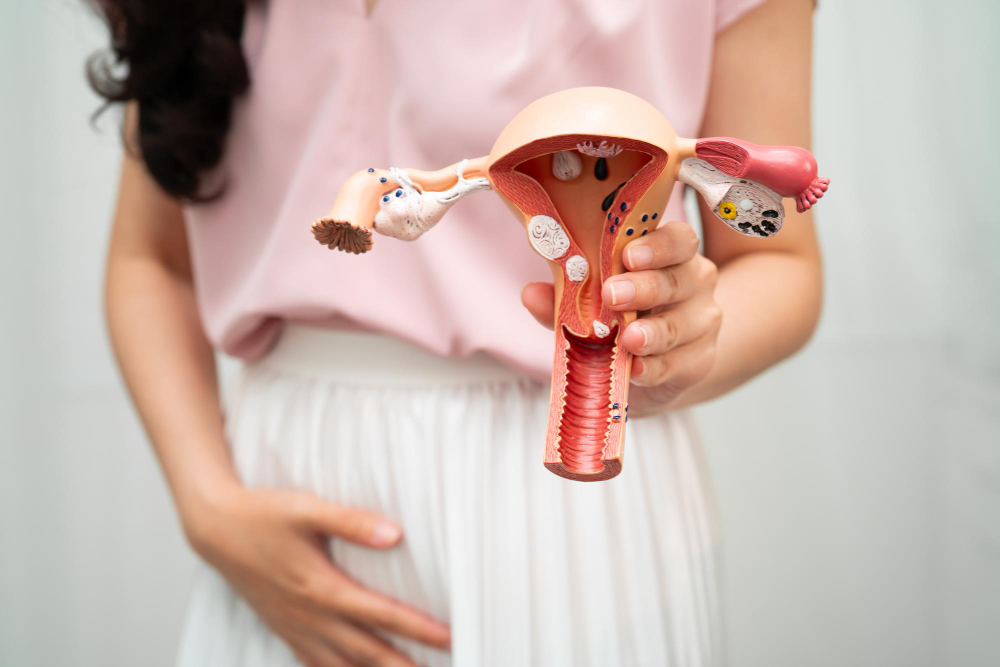Introduction
Ovarian cysts are fluid-filled sacs that form on or inside the ovaries. Most women will have an ovarian cyst at some point in their lives. Usually, these cysts are harmless and go away on their own. However, some cysts can cause problems and may need treatment. Understanding ovarian cysts is important for your health. Early awareness can help you manage symptoms and seek care when needed.
Symptoms
Many ovarian cysts do not cause symptoms. In fact, you might not know you have one. But sometimes, cysts can cause discomfort or other signs. For example, you may notice:
However, if a cyst bursts or twists, you may feel sudden, sharp pain. In rare cases, you might also have fever or vomiting. If you notice these symptoms, seek medical help right away.
Causes and Risk Factors
Ovarian cysts form for different reasons. Most often, they develop during the menstrual cycle. For instance, each month, the ovaries release an egg. Sometimes, the sac holding the egg does not open or close as it should. This can lead to a cyst.
Other causes and risk factors include:
While most cysts are not cancerous, age and family history can increase your risk. Women after menopause should pay extra attention to any new cysts.
Diagnosis
Doctors use several methods to diagnose ovarian cysts. First, they may ask about your symptoms and medical history. Next, a pelvic exam helps check for swelling or lumps. Often, doctors use an ultrasound to see the cyst’s size and shape. This test uses sound waves and is painless.
Other tests may include:
These steps help answer the question, “How are ovarian cysts diagnosed?” Early diagnosis can guide the best treatment plan.
Treatment Options
Treatment for ovarian cysts depends on their size, type, and your symptoms. In many cases, no treatment is needed. The cyst may go away on its own. However, doctors may suggest:
If the cyst is large, painful, or does not go away, surgery may be needed. There are two main types of surgery:
Always discuss ovarian cyst treatment options with your doctor. They will help you choose the safest plan.
Prevention and Lifestyle Guidance
While you cannot always prevent ovarian cysts, you can lower your risk. For example, regular check-ups help catch problems early. In addition, healthy habits support your overall well-being. Try these tips:
However, remember that some cysts form naturally and cannot be avoided. Staying informed helps you take action when needed.
When to See a Doctor
It is important to know when to seek medical advice. You should see a doctor if you have:
Early care can prevent complications. Even if your symptoms are mild, regular check-ups are wise. Your doctor can answer questions about ovarian cyst symptoms and guide you on next steps.
Conclusion
Ovarian cysts are common and often harmless. Still, knowing the symptoms, causes, and treatment options is important. Early diagnosis and healthy habits can help you manage your health. If you have concerns or symptoms, consult a specialist for personalized guidance.
